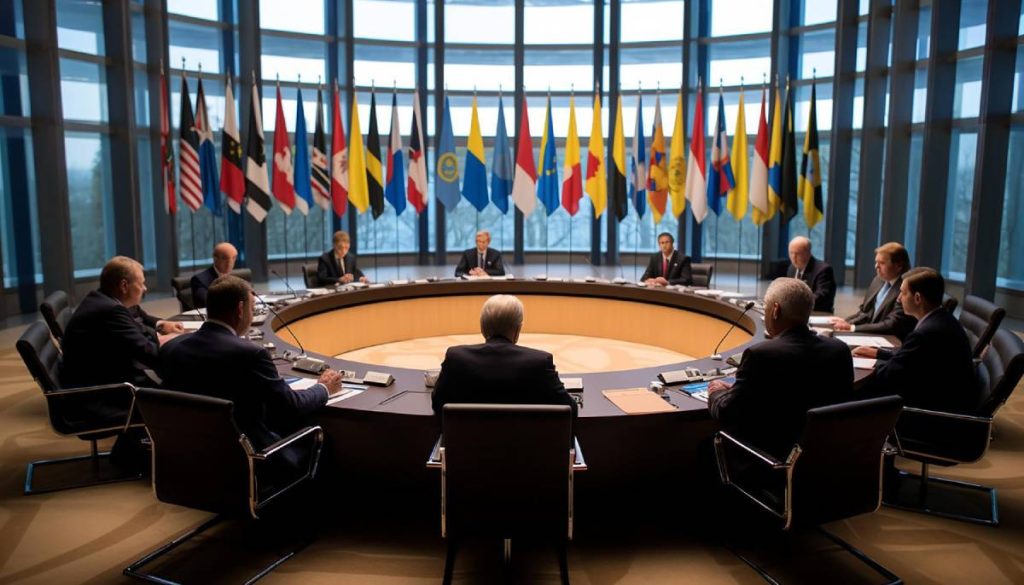Polarization Driven by Economic Policy Reforms
Across the globe, policy reforms intended to strengthen economies are increasingly leading to social division. Governments introducing sweeping changes to taxation, welfare systems, or labor laws often justify these reforms as necessary measures to boost productivity and fiscal responsibility. However, the outcomes are far from uniform. While some sectors benefit from deregulation or austerity measures, others are left vulnerable, resulting in heightened class tensions and widening income gaps. These economic shifts are polarizing public discourse, as citizens debate the fairness and long-term viability of the policies. In many countries, debates over policy reforms have moved beyond parliaments and into the streets, sparking protests and political upheaval. The disparity in outcomes creates a sense of inequality and distrust in institutions, feeding into populist narratives and radical political alternatives. Rather than unifying societies through shared economic progress, these reforms are drawing stark lines between winners and losers, transforming technical adjustments into ideological battlegrounds.
Social Policy Reforms and Cultural Backlash
Attempts to modernize social frameworks through progressive policy reforms have ignited cultural resistance in various parts of the world. Policies aimed at improving gender equality, expanding LGBTQ+ rights, or reforming immigration laws are often met with deep skepticism or outright opposition from traditionalist groups. These reforms, while intended to create inclusive and just societies, can provoke backlash among populations who perceive such changes as threats to cultural identity or religious values. As governments push forward with progressive agendas, political polarization intensifies, pitting reformists against conservatives in emotionally charged debates. The clash of values surrounding these policy reforms often transcends policy itself, becoming symbolic of a broader societal struggle over identity, belonging, and authority. This divide is not confined to parliaments; it permeates communities, education systems, and even families, making reconciliation more difficult and complex.
Education Reforms and Generational Divides
Few areas illustrate the divisive impact of policy reforms more clearly than education. Reforms aimed at revising curricula, altering access to public education, or reshaping funding models have become lightning rods for political contention. In many countries, younger generations view education reform as essential for social mobility and digital readiness, while older generations may see it as a departure from tradition and national values. These competing visions lead to generational divides that fracture national unity. As governments implement sweeping policy reforms in education, the gap in priorities and expectations between age groups becomes more pronounced. The content of what is taught—history, civics, science—is increasingly politicized, further fueling ideological divisions. This struggle over the future of education reflects deeper societal rifts about identity, power, and the legacy each generation hopes to leave behind.
Healthcare Policy and Inequality in Access
Reforms in healthcare systems are another source of growing contention, as access and affordability become central issues in public debate. In nations attempting to transition from privatized models to universal care—or vice versa—policy reforms can leave vulnerable populations in limbo. The reallocation of healthcare funding, changes in insurance mandates, or adjustments in coverage for essential services can disproportionately affect low-income communities. These disparities lead to protests and political organizing, especially when reforms are perceived as privileging the few over the many. While reform is often positioned as a step toward modernization or efficiency, it can result in increased stratification, with only a segment of society reaping the benefits. When policy reforms in healthcare are executed without inclusive planning or social consensus, they risk becoming flashpoints for national unrest and long-term public disillusionment.
Environmental Reforms and Rural-Urban Tensions
Environmental policy reforms have become necessary in the fight against climate change, yet their implementation often deepens divides between urban and rural populations. Urban centers, typically aligned with progressive environmental goals, tend to support regulations aimed at reducing emissions and transitioning to green energy. However, rural communities, whose livelihoods depend on agriculture, mining, or fossil fuels, frequently view these reforms as direct threats to their economic survival. The uneven distribution of environmental burdens and benefits fosters resentment and resistance. These policy reforms highlight the complexities of pursuing global sustainability goals within deeply unequal national contexts. When environmental legislation is passed without accommodating the realities of affected communities, it exacerbates social fragmentation and weakens national solidarity in addressing the climate crisis.
Judicial and Constitutional Reforms Sparking Political Unrest
In many countries, policy reforms related to the judiciary or constitutional structure are provoking fierce political unrest. Whether in the form of extending term limits, reshaping court appointments, or redefining executive powers, these reforms are often seen as attempts to consolidate authority. Critics argue that such changes erode democratic safeguards and concentrate power in ways that threaten checks and balances. Public reaction to these policy reforms has been dramatic in several cases, with mass protests and international condemnation highlighting the tensions between governance and legality. These reforms, even when legally permissible, are perceived as illegitimate when they disregard public input or benefit ruling elites disproportionately. The legitimacy of political institutions is compromised when structural reforms appear to be self-serving rather than in service of the people.
Media Reforms and the Future of Information Control
Recent policy reforms targeting media ownership, censorship laws, and press regulations are raising alarms about the future of information freedom. In both democratic and authoritarian regimes, governments are implementing laws that can significantly alter how news is produced, distributed, and consumed. While some reforms are introduced under the banner of combating misinformation or protecting national security, they often serve to suppress dissent and control public narratives. These measures create a chilling effect in journalism and stifle open debate, making democratic engagement more difficult. As citizens lose trust in media institutions, alternative platforms and conspiratorial thinking gain traction. These policy reforms don’t just affect journalists—they affect everyone’s right to participate in informed civic discourse. The battle over media freedom is thus a battle over national identity, transparency, and truth itself.
Conclusion
Although policy reforms are often introduced as necessary steps toward progress or modernization, their real-world consequences can be divisive and destabilizing. From economic inequality and cultural backlash to generational divides and institutional distrust, these reforms frequently exacerbate existing tensions rather than resolve them. As governments around the world continue to push for structural changes, the importance of inclusive dialogue, transparency, and empathy in the reform process becomes ever more critical. Without these elements, policy reforms risk deepening fractures within societies, transforming tools of governance into sources of division and unrest.



